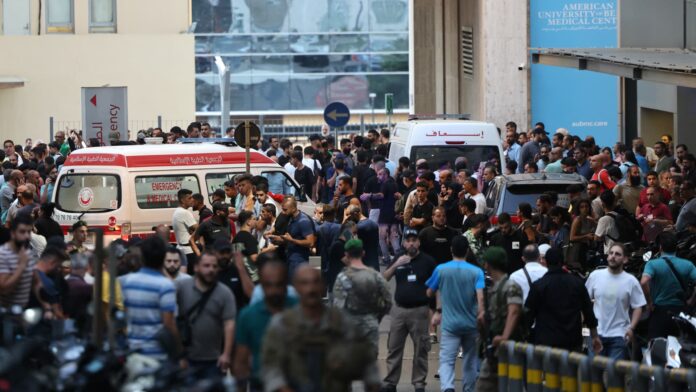Israel conducted a rare airstrike in a densely populated southern Beirut neighborhood on Friday, killing a senior Hezbollah military official. This strike was the deadliest on Lebanon’s capital in decades, resulting in at least 14 deaths and dozens of injuries.
The Israeli military spokesperson, Rear Adm. Daniel Hagari, confirmed that the strike killed Ibrahim Akil, a commander of Hezbollah’s Radwan Force, along with 10 other Hezbollah members.
Israeli Defense Minister Yoav Gallant stated that they will continue to pursue their enemies, even in Beirut, to protect their citizens. The strike targeted Akil as part of what Gallant described as “a new phase of war.”
Hezbollah later confirmed Akil’s death, honoring him as a “great jihadist leader.” Akil was part of Hezbollah’s highest military body, the Jihad Council, and was sanctioned by the United States for his involvement in the 1983 embassy bombing in Beirut.
The airstrike raised fears of a full-scale war erupting in the Middle East, with Hezbollah retaliating by launching rockets into northern Israel. The strike targeted a crowded neighborhood in Beirut, resulting in casualties and destruction.
Lebanon’s Health Ministry reported at least 14 deaths and 66 injuries, with many in serious condition. The rescue operation continued to recover bodies from the rubble caused by the attack.
Hezbollah responded to the Israeli strike with rocket salvos into northern Israel, targeting military sites. Israel’s Iron Dome system intercepted most rockets, preventing significant damage.
Israel and Hezbollah have engaged in a cycle of escalation, with Hezbollah responding to past Israeli strikes in southern Lebanon. The recent attacks have heightened tensions along the Israel-Lebanon border.
Despite the recent violence, Israel and Hezbollah continue to exchange fire, with casualties in Gaza mounting as a result of Israeli strikes. The conflict shows no signs of abating, with both sides prepared for further confrontation.
As the situation remains tense, efforts to de-escalate the conflict are essential to prevent further bloodshed.






